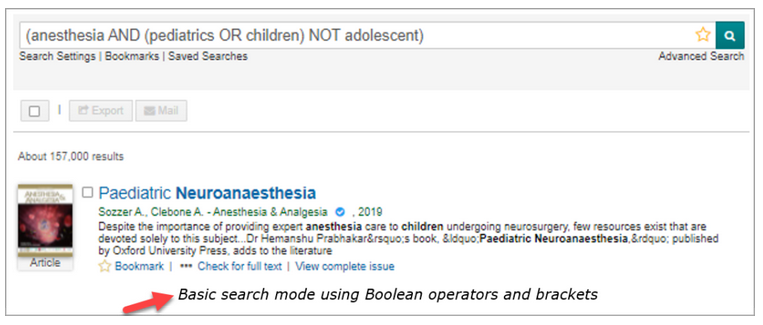Search Syntax
The following search operators can be used in both Basic and Advanced search modes, providing flexibility to searchers with medium- to high-level search capabilities to use precision search operators where they feel comfortable doing so.
- Boolean Search Operators: The advanced search query builder allows search lines to be combined with Boolean operators (AND, OR, NOT) displayed in dropdown menus, as explained above. The same operators can also be used in basic search mode, by entering the operators directly into the search box.
- Parentheses: The search can be broken up into discrete sections using parentheses, which can be entered directly into the search box in basic search mode and the advanced search query builder. Nesting of terms using both parentheses and Boolean operators is supported.
- Wildcards and Truncation: The Ovid Discovery search uses automatic stemming of search terms, effectively performing a truncated search without the need to enter wildcard operators for right-side truncation. For example, a search for ‘diabetes’ will also search for ‘diabetic’ automatically. This is the equivalent of searching for ‘diabet*’.
The automatic stemming can be avoided by using quotation marks – a search for ‘diabetes’ will only search for that term and will not include ‘diabetic’.

- Fielded Searching: Searches can be performed against specific fields within the index in both Basic and Advanced Search modes. Fields can be selected through the Advanced Search query builder, see the Advanced Search section for more information. Fields can be searched in Basic Search mode by entering the field before the search term in the format <field identifier>:<search term(s)>. For example, a search for issn:0009-7322 will retrieve all citations from a journal with ISSN of 0009-7322.




